6 Tech Tools Helping Boomers Take Charge of Their Health (Without Feeling Overwhelmed)
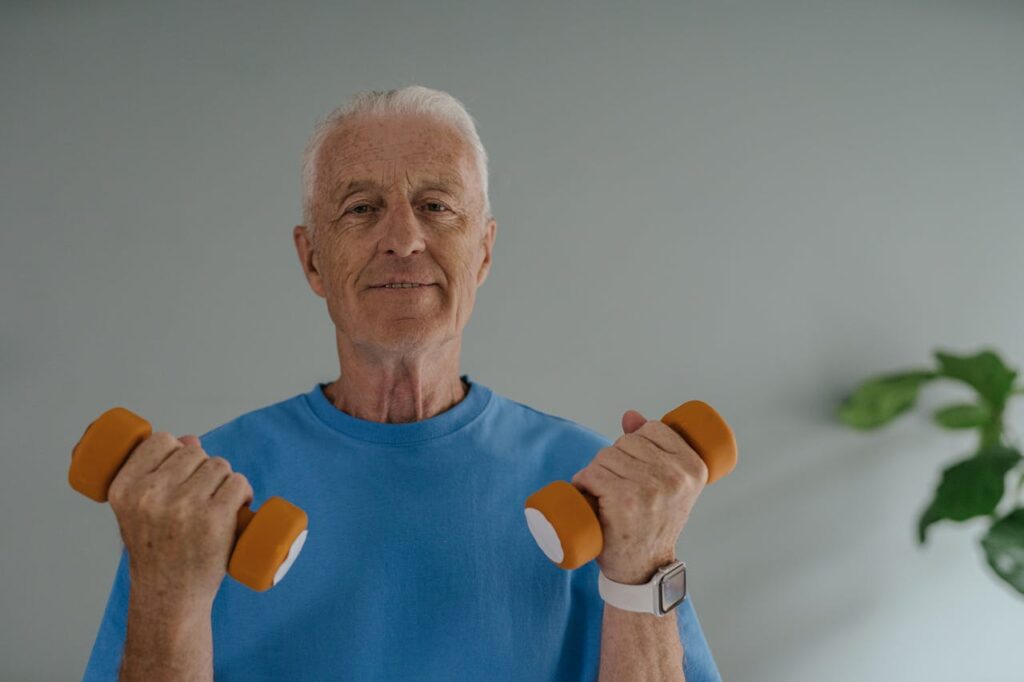
Baby Boomers, you have lived through some of the biggest leaps in history—rotary phones turning into iPhones, cassette tapes morphing into playlists, and doctors once keeping paper charts now pointing you to online health portals. It is safe to say, you have seen it all. But here is the truth: while technology can sometimes feel like a foreign language, it is also opening doors to better health, more independence, and even a little fun along the way.
Taking control of your health is no small feat, especially when managing medications, keeping up with appointments, and staying active. Thankfully, a new wave of tools designed with real people—not tech wizards—in mind is here to make things simpler. From friendly reminders that help you take your pills on time to smart devices that track your heartbeat while you walk the dog, these tools are practical, approachable, and surprisingly easy to use.
So grab your reading glasses (or ask your tablet to zoom in), because we are diving into six tech tools helping Boomers feel healthier, more confident, and ready to enjoy life on their own terms.
1. Fitbit and Wearable Trackers: Your Personal Cheerleader
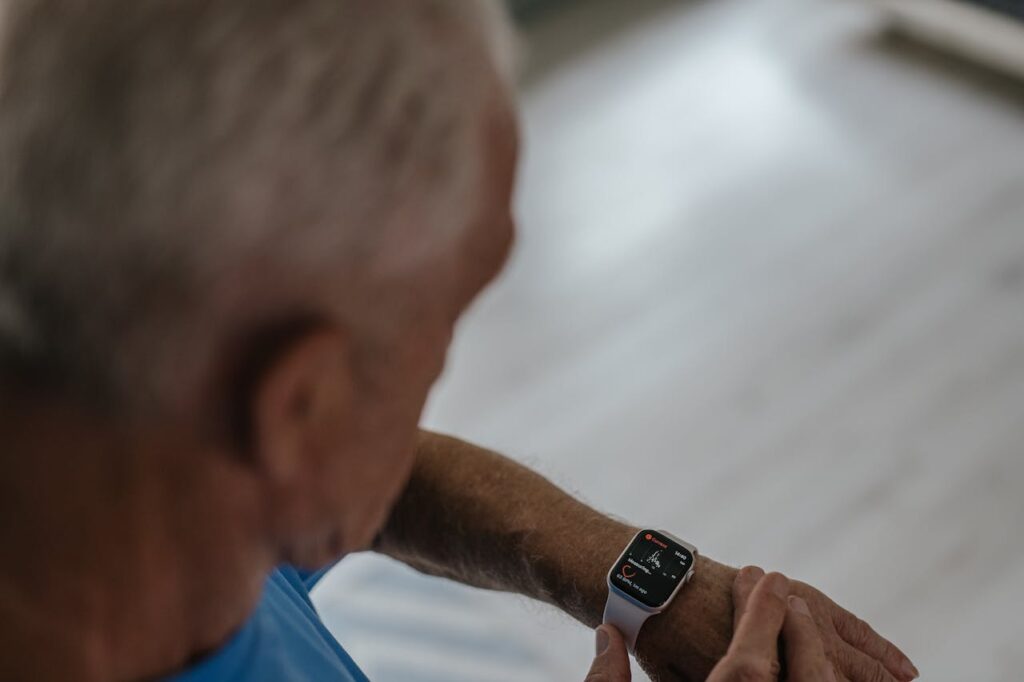
Let’s face it—staying active takes motivation. That is where wearable fitness trackers like Fitbit, Apple Watch, and Garmin step in. These small devices can monitor your steps, heart rate, sleep, and even remind you to stand up when you have been sitting too long. They are like having a cheerleader strapped to your wrist, buzzing when you hit your goals and nudging you when you need a little boost.
For Baby Boomers, the appeal is in the simplicity. The numbers are easy to read, the apps provide clear feedback, and many insurance plans—including some Medicare Advantage programs—actually cover these devices at little or no cost. Plus, family members can connect with you through shared apps, turning exercise into a fun group challenge. Whether you are strolling the neighborhood or tracking a round of golf, these wearables turn everyday activity into progress you can see.
2. Medisafe and Pill-Minder Apps: No More Missed Medications
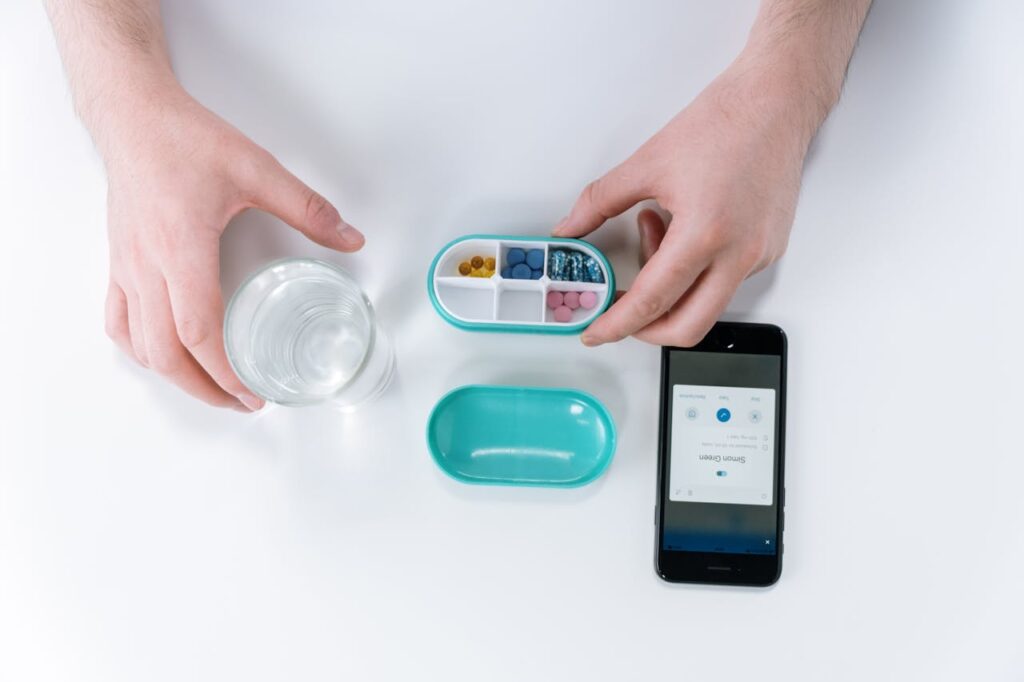
If you have ever looked at three orange pill bottles and wondered, “Did I take that one already?” you are not alone. Managing medications can be confusing, and missing doses is more common than most people think. That is why apps like Medisafe, Pill Monitor, and MedWatch are lifesavers.
These apps let you schedule reminders for every prescription, supplement, or vitamin. At the right time, your phone chimes with a friendly alert, ensuring you do not skip or double up. Some even allow a trusted family member to get a notification if you miss a dose, offering peace of mind for everyone involved. They are simple, free to download, and often easier to set up than programming a microwave. In short, they keep your health on track without the stress.
3. GrandPad Tablet: A Tablet That Feels Like It Was Made for You
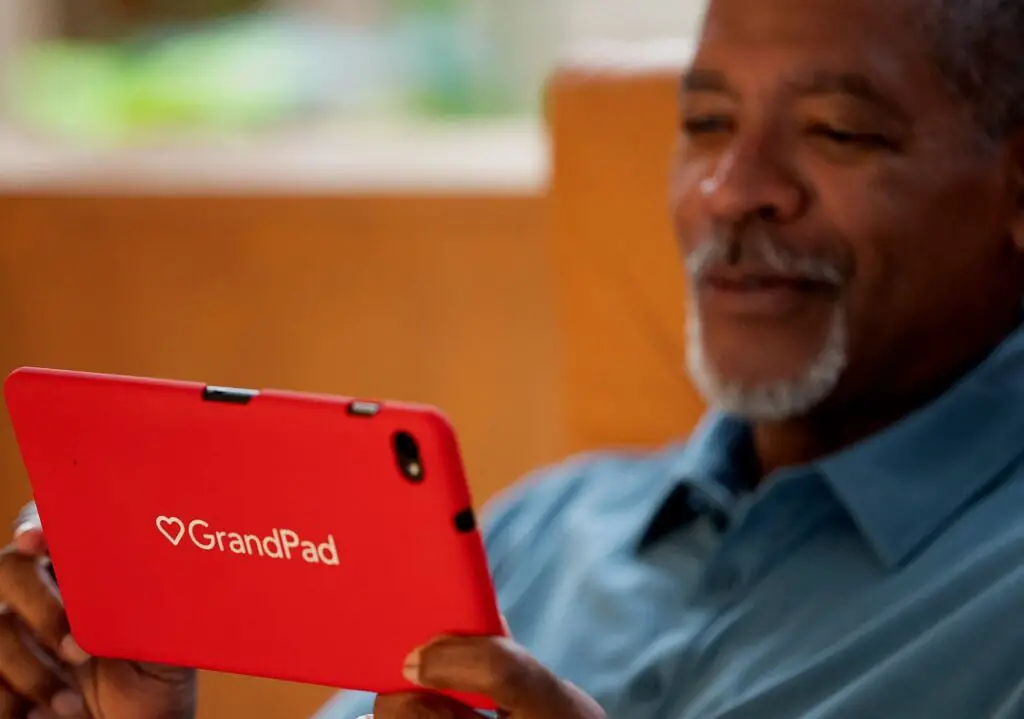
Sure, iPads and Android tablets are fantastic—but let’s be honest, they can also feel overwhelming with endless icons, pop-ups, and updates. Enter the GrandPad, a tablet designed specifically for seniors. Its large buttons, simple interface, and streamlined features make it easy to video call your kids, read the news, check emails, or look at photos without needing a “how-to” manual.
The beauty of GrandPad is that it strips away the clutter. There are no complicated app stores or confusing settings. Instead, it is a gateway to connection—letting you share moments with family and friends, even if they live across the country. It is the kind of technology that feels less like a gadget and more like a helping hand. For Boomers who want to stay connected without feeling bogged down, this is a gem.
4. ONSCREEN’s TV-Based “Joy”: A Companion in Your Living Room
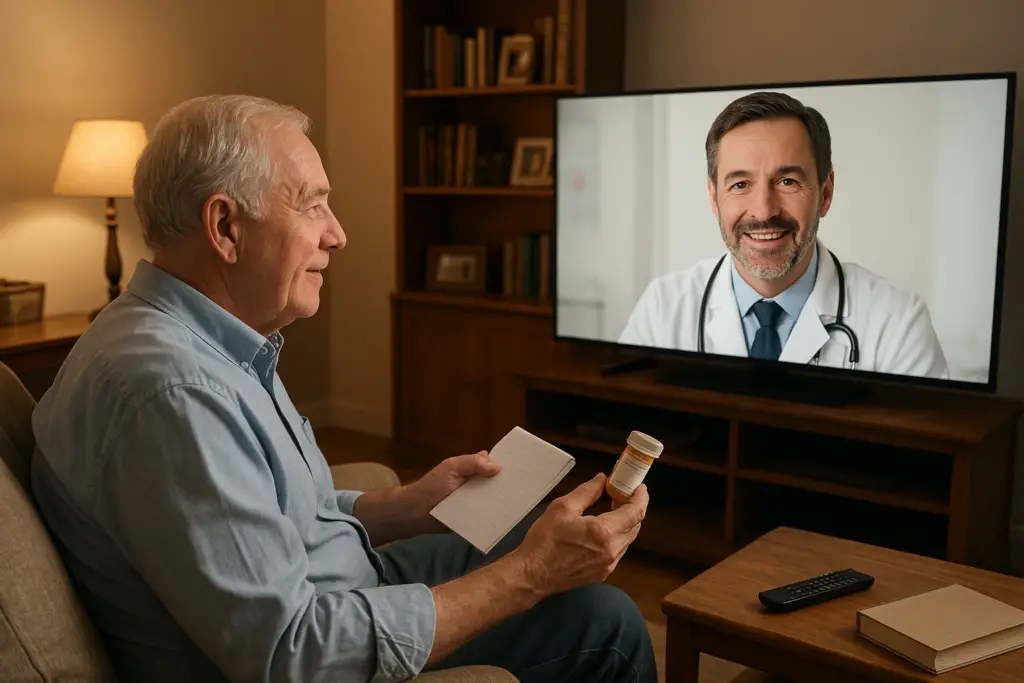
Imagine turning on your TV and instead of scrolling through reruns, being greeted by Joy—an AI-powered health companion designed to help seniors stay on track. Joy is part of ONSCREEN’s TV-based system that provides medication reminders, daily check-ins, brain games, and even art activities—all displayed right on your television.
No smartphones, complicated apps, or fiddling with settings. Just sit back in your favorite chair and let Joy come to you. In some areas, like New York, pilot programs are offering these devices for free to eligible seniors, but even outside of those regions, it is worth watching as these services expand nationwide. It is not about replacing real people—it is about adding a friendly, reliable presence that makes staying healthy feel less like work.
5. Home Automation and Smart Reminders: Quiet Support Behind the Scenes
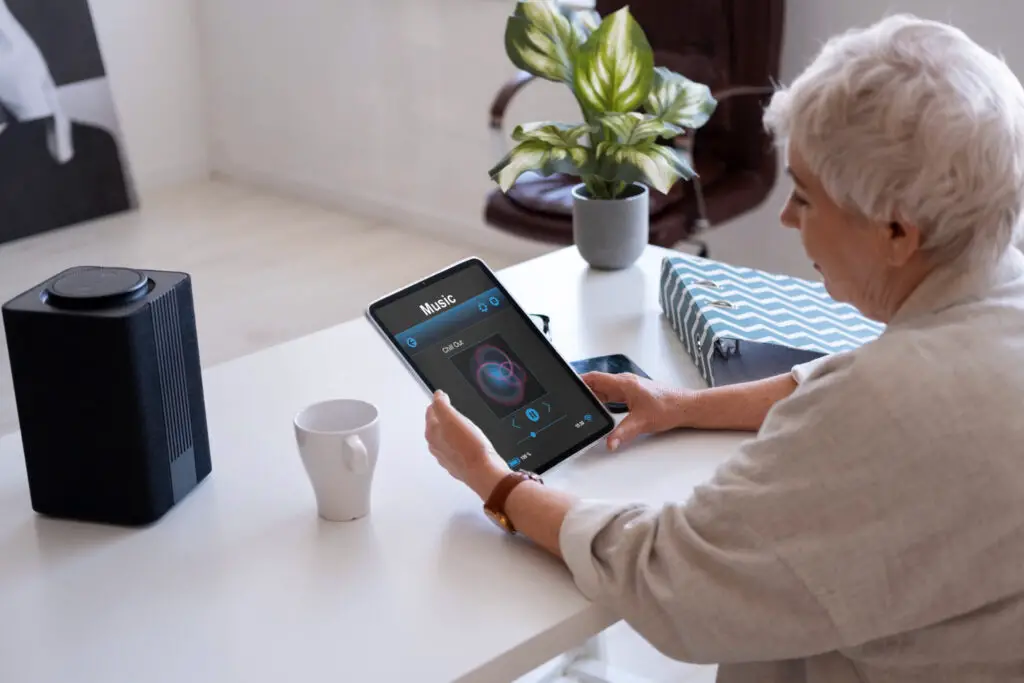
Ever wish your home could give you a gentle nudge when it is time to take your pills, close the blinds, or lock the front door? With today’s smart home technology, it can. Voice assistants, smart plugs, and automated reminders make it easier than ever to stay on top of daily routines without feeling tethered to a schedule.
For Baby Boomers, this can be life-changing. Smart speakers like Amazon Alexa or Google Nest can be programmed to announce reminders—“Time for your afternoon medication”—or even send alerts to your phone if something is left undone. Smart sensors can automatically turn off lights or adjust the thermostat, adding comfort and safety to your home. Think of it as having an invisible butler who knows your preferences, never judges, and always works on time.
6. Telehealth and Health Portal Apps: Doctors Without the Waiting Room
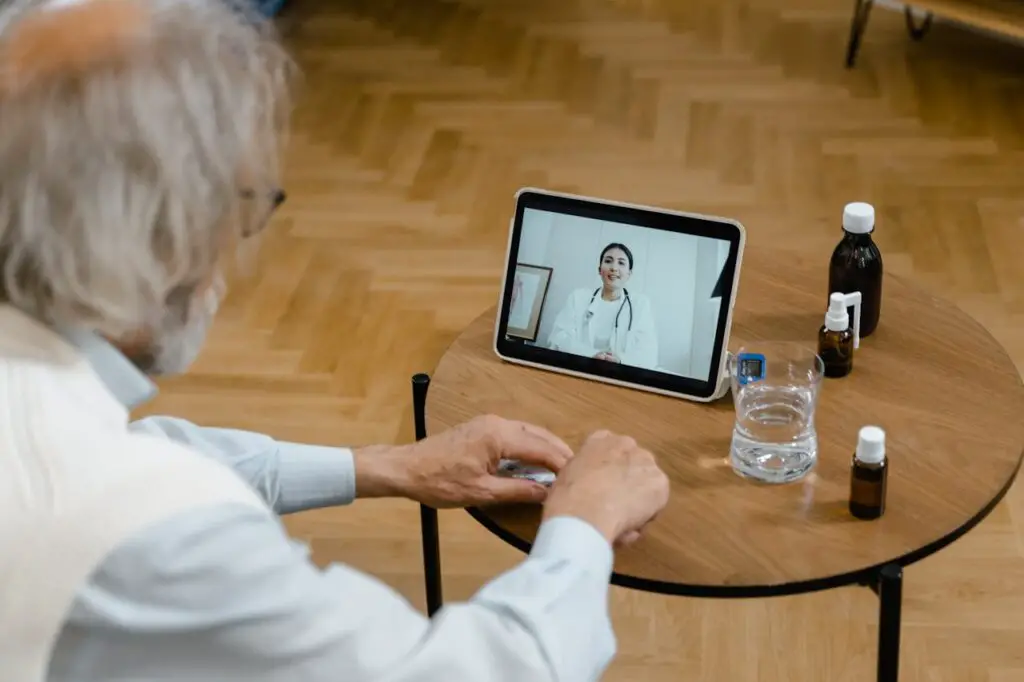
Gone are the days of sitting in traffic or flipping through old magazines in a waiting room just to ask your doctor a quick question. With telehealth services, you can meet your physician from the comfort of your home. Video visits allow you to discuss symptoms, review test results, and even refill prescriptions—all without leaving the couch.
Many health systems now pair telehealth with patient portals like MyChart. These apps let you view lab results, track medications, schedule appointments, and message your doctor directly. For Boomers managing multiple health concerns, this level of access can be empowering. It is not about replacing in-person visits, but about making everyday healthcare more convenient and less stressful.
Final Thoughts
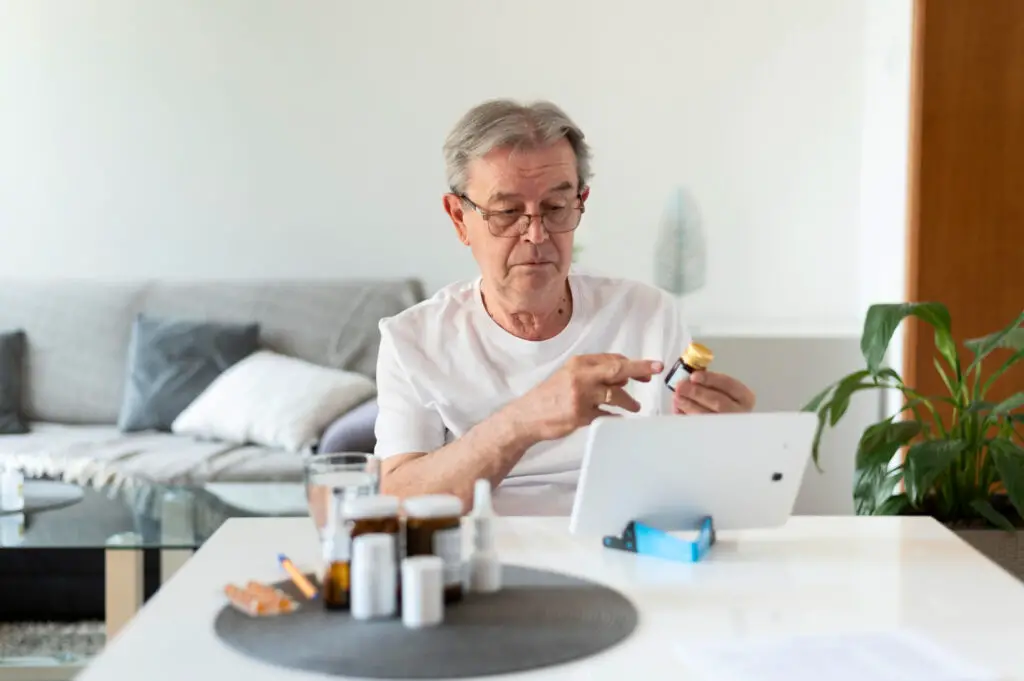
Health does not have to be overwhelming or confusing. With the right tools, Boomers can take charge of their well-being while staying connected, independent, and confident. From wearables that cheer you on during your morning walk to AI companions that remind you to take your meds, these technologies are not about complicating life—they are about simplifying it.
Think of them as modern allies, quietly working in the background so you can spend more time doing what you love. Whether that is traveling, gardening, golfing, or playing with the grandkids, your health is the foundation. And with these tech tools, you are not just keeping up—you are taking control.
So, the next time someone tells you technology is only for the younger crowd, smile and show them how Boomers are leading the way in using it to live longer, healthier, and happier lives. After all, staying healthy is not about chasing trends—it is about enjoying life to the fullest.
Leave a Reply